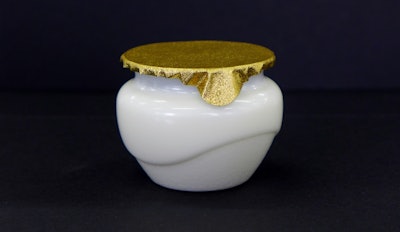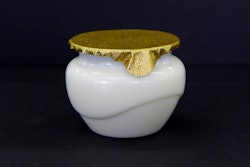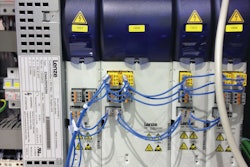Over the past several years, yogurt has been a booming market in the U.S. But how can a brand owner differentiate their product from the masses in the dairy aisle? IMA Dairy & Food Group USA, formerly OYSTAR USA, has a solution that focuses on packaging differentiation. In 2015, it introduced thermoforming technology to the U.S. that allows food manufacturers to create proprietary shapes for cups, as well as bottles, at nearly the same cost as standard molds.
IMA’s Open Mold technology has been around for more than a decade in Europe. In 2006, French dairy company Senagral acquired Open Mold thermoforming to manufacture its custom “ball cups” in-house and reduce its packaging costs.
Senagral’s ball cup was originally introduced as a response to a custom “yogurt bubble” container from Dannon. Senagral designed its unique-to-brand yogurt pot with Alpla, which supplied the preformed cups to Senagral until the company’s installation of an Erca thermoforming machine. Open Mold traditionally is integrated into IMA’s Erca EF form/fill/seal machine, however Senagral was already using an Erca filling and sealing machine for the preformed cups.
“Senagral’s requirements for the thermoforming technology were that it reduce the cost of their packaging, while creating exactly the same cup shape as they had and the same top-load resistance, with an output speed of 36,000 cups an hour,” explains Dominique Schwab of Erca.
Easy integration
Senagral, formerly Senoble, produces ultra-fresh dairy products, including mixed/stewed yogurts, pudding, custards, drinking yogurt, and fresh cheese, under its own name as well as for private label, for distribution in France, Spain, and the Benelux countries. The company operates four production sites in France. The new thermoforming machine was installed in its Château-Salins plant, under the direction of Frédéric Poinas, responsible for maintenance and new construction at the facility.
As Poinas explains, the machine is set up in a dedicated room to feed two filling and sealing lines having production speeds of 22,000 and 28,000 cups/hr. Positioned between the two lines and the thermoformer are two storage bins, each with a capacity of 320,000 cups.
The cup being produced—the ball cup—is a 125-g, translucent polystyrene yogurt container with a 69-mm dia, a height of 52 mm, and an opening diameter of 53 mm. The round container features a wave motif and a textured base. As Schwab explains, with traditional thermoforming technology, containers must be straight-walled or tapered in order to release from the production mold. Open Mold technology relies on molds divided into two halves that open to release the cup. A cutting station is integrated into the forming station to separate the cups. After forming, pushers push the cups through the film web onto a conveyor that leads to the storage bins.
Reducing material use, the thermoformer employs a plastic stretching device that minimizes the bottom thickness in unused thermoforming areas. Schwab estimates that Open Mold technology has reduced Senagral’s scrap rate to 34%.
The end result of Senagral’s implementation of Open Mold thermoforming has been reduced costs for packaging, including the elimination of transportation and storage of preformed cups. According to Poinas, the company achieved an ROI on the investment of the machinery and storage bins of less than three years.
Packaging in France
France represents13% of the total packaging market volume share in Western Europe, behind Germany’s 21% and the U.K.’s 15%. Yogurt and sour milk products are expected to grow 0.4% CAGR from 2014 to 2019.
Source: PMMI Global Packaging Trends Report 2015. Get a free executive summary.



























